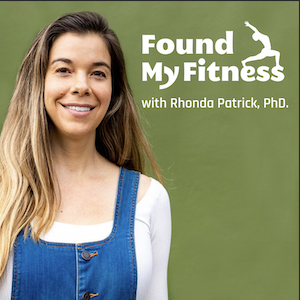Does increasing IGF-1 lead to cancer? | Rich Roll
Get the full length version of this episode as a podcast.
This episode will make a great companion for a long drive.
The BDNF Protocol Guide
An essential checklist for cognitive longevity — filled with specific exercise, heat stress, and omega-3 protocols for boosting BDNF. Enter your email, and we'll deliver it straight to your inbox.
Insulin-like growth factor 1 (IGF-1) plays a role during childhood for growth and continues later in life to have anabolic and neurotrophic effects. IGF-1 is also implicated in contributing to aging and enhancing the growth of cancer after it has been initiated. Protein intake increases IGF-1 levels in humans, independent of total caloric consumption, and too much IGF-1 can promote the growth of cancer cells. In this clip, Rich Roll and Dr. Rhonda Patrick discuss how IGF-1 levels impact cancer risk.
This transcript is reserved for members.
FoundMyFitness Members get access to exclusive content not available anywhere else, including a transcript of this episode.
You wouldn't believe how cool being a premium member of the world's best cross-disciplinary science-focused website and podcast really is.
Hear new content from Rhonda on The Aliquot, our member's only podcast

Listen in on our regularly curated interview segments called "Aliquots" released every week on our premium podcast The Aliquot. Aliquots come in two flavors: features and mashups.
- Hours of deep dive on topics like fasting, sauna, child development surfaced from our enormous collection of members-only Q&A episodes.
- Important conversational highlights from our interviews with extra commentary and value. Short but salient.
Cancer News
- Indoor tanning links to higher melanoma risk and leaves a broader mutational footprint in normal skin melanocytes.
- Immunochemotherapy given earlier in the day linked to longer survival in people with advanced small cell lung cancer.
- Berberine treatment after colon polyp removal showed lasting protection against recurrence.
- Sugar-sweetened beverages may help colorectal cancer spread by changing how tumor cells use energy
- Early use of vitamin B3 derivative may halve recurrence after first skin cancer.





